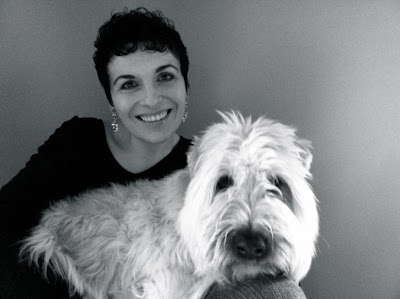CHESTERTOWN, MD—In the cover image
of professor Jehanne Dubrow’s latest volume of poetry, tight rows of bullets
stand on end like soldiers at attention, their lockstep rigidity broken front
and center by an open tube of lipstick. That
red-tipped symbol of female sexuality and heat disturbing the relentless monotony
of cold, hard metal is a perfect introduction to the storylines Dubrow’s poems trace
on the pages inside.
Red Army Red (TriQuarterly
Books, October 31, 2012) paints scenes from Cold War Poland and the lifting of
the Iron Curtain while it also shares a young girl’s journey through the
bewildering geography of puberty and into sexual awakening. Dubrow uses the
oppressive language of the Cold War to speak about the oppressive nature of adolescence, and she employs the vocabulary of economic systems—Communism and capitalism—as
metaphors for the excesses and deprivations of puberty. “That we experience
large-scale, structural traumas as small-scale, personal ones is among the
profundities on which Jehanne Dubrow’s Red
Army Red is built,” poet H.L. Hix writes on the book jacket.
In many of its details, the book
chronicles Dubrow’s own coming of age as the daughter of American diplomats
stationed in Poland in the 1980s. Born in
Italy, she also spent time with her family in Yugoslavia, Zaire, Belgium and
Austria. But for seven of her pre-teen and teenage years, the
family lived in Communist-era Warsaw.
Dubrow teaches creative writing and literature and is
Director of the Rose O’Neill Literary House at Washington College. Red Army Red is her fourth book. Her
first, The Hardship Post, won the Three Candles Press Open Book
Award in 2009, and her second, From the Fever-World, won the Washington
Writers’ Publishing House Poetry Competition, also in 2009. Stateside
was published by Northwestern University Press in 2010. Dubrow’s poetry,
creative nonfiction and book reviews have appeared in numerous journals,
including Southern Review, The New Republic, Poetry, Ploughshares, The
Hudson Review, The New England Review, West Branch, Gulf Coast, Blackbird,
Copper Nickel and Prairie Schooner.
Her many honors include the Poetry Society of America’s
2012 Alice Fay Di Castagnola Award, an Individual Artist’s Award from the
Maryland State Arts Council, and a Walter E. Dakin Fellowship and Howard
Nemerov Poetry Scholarship from the Sewanee Writers’ Conference.








